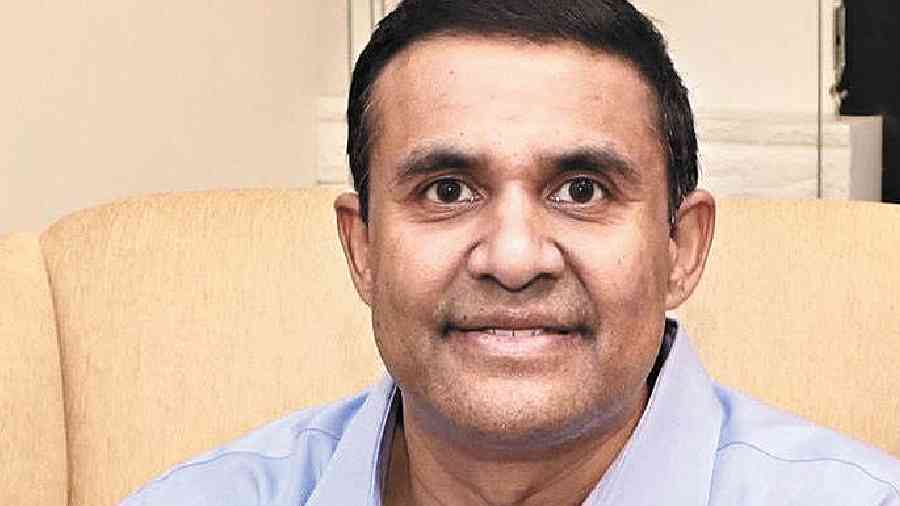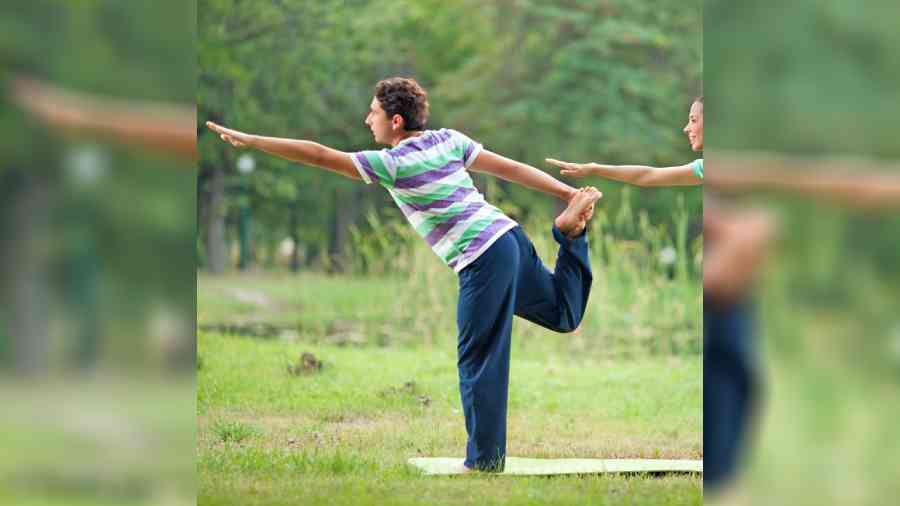April 7 marks World Health Day. The devastating pandemic has been an acid test for one's immunity and has doubled our levels of anxiety and stress. It has also served as a wake-up call to never neglect our health, both physical and mental.

Dr Ranjan Ghosh
Dr Ranjan Ghosh reminds us of the same too when we caught up with him. An expert psychiatrist in the field of adult and paediatric mental health, he has been practising for over two decades and is known as a pioneer in telepsychiatry. In mid-2019, he established the Good Karma Mental Health clinic, which aims to make therapy more accessible to the public and promote overall well-being and break stigmas when it comes to mental health. His expertise in the field of Bipolar Disorder, PTSD and autism has seen him as the contributing editor of DSM-V, which is regarded as the Bible of the profession. "We often focus on disease and not prevention. We are a reactionary society," he says. As we celebrate World Health Day, Ghosh shares some simple yet effective tips for a healthy mind and body that can help prevent illness and boost our overall health.

First and foremost, sleep. One of the most crucial aspects of maintaining good health is getting enough quality sleep. Studies show that sleep deprivation costs the world around $818 billion each year, and disruptions to our circadian rhythm can weaken our immune system and increase our risk of illness by 25 per cent. To combat this, it’s important to focus on not just the quantity but also the quality of our sleep. Focus on your circadian clock which is regulated internally by our body and runs 24x7 but resets every day by the sun’s light and dark cycle. By sticking to a regular sleep schedule and avoiding excessive light and electronics before bedtime, we can maintain a healthy circadian rhythm as well as creating a comfortable sleep environment, avoiding caffeine and alcohol, and scheduling the socalled “worry time” in the early evening can be massive factors that affect sleep quality positively. But what about when we’re not sleeping? The key is to associate our bed with only two things: Sleep and restorative value. When we use our beds for activities such as working or watching TV, our brains can struggle to associate space with restfulness. One solution is to find a comfortable chair to use for non-sleep activities, and when we’re tired and about to fall asleep, we can move to our bed. By consistently training our minds to associate our bed with sleep, we can establish a healthy sleep routine and improve our overall health.

Secondly, gratitude. It may feel like a small thing but the outcome is atomic. According to Ghosh it involves two simple actions - positive affirmations and uplifting others. When we express gratitude, our brains release dopamine and serotonin, which helps enhance our mood and make us feel happier from the inside. Additionally, frequent gratitude practices can help people develop stronger relationships, deal better with adversity, and of course, improve their overall health. “If you have ever been in a less fortunate versus more fortunate situation, please remember how you got there. Be the reason someone feels welcomed, seen, heard and valued, not judged and loved,” he says.

Third, extremely common yet neglected by many, physical health. The most focused-on aspect involves taking care of the physical body, what is consumed, and how it is treated, which is great but not enough for lifelong health. To maintain physical fitness, it is necessary to move more, stand up and walk around even during office and work hours. On average, a city-living adult takes about 3,000 to 4,000 steps per day, which is roughly equivalent to 1.5 to 2 miles. Walking less than 5,000 steps per day is considered a sedentary lifestyle and the same can be said for those who sit for prolonged hours thus it is advised to take preventive measures rather than waiting for the onset of diseases. To prevent this, take a break from sitting every 60 minutes and engage in any kind of movement for just five minutes. By committing to a healthy diet rich in protein and low in carbohydrates and drinking plenty of water, one can take steps towards better physical health. Simple actions such as taking the stairs and incorporating walking breaks into the day can improve physical health drastically. Keep in mind, it is important to limit alcohol use as it is high in calories and may worsen health conditions that are common among older adults, and to avoid tobacco products altogether. By adopting these habits, individuals can slow the onset of age-related changes and promote long-term physical health.

Lastly, reach out. Humans are social creatures and connecting with others is an essential part of a healthy and fulfilling life. It is especially important during times of stress and uncertainty. One way to ensure that you stay connected with others is to reach out to three people every day, no matter what. This doesn’t mean just sending a quick text or email, but rather engaging in deep conversations with those who are close to you. In fact, research shows that strong social ties are linked to a longer life, while loneliness and social isolation are linked to poorer health, depression, and an increased risk of early death. The realisation struck with the Covid-19 pandemic of just how much social interaction means to humans. Having a variety of social relationships can also help reduce stress and lower the risk of heartrelated problems. So, it’s important to make the effort to connect with others and build meaningful relationships. It’s okay to feel judged by what you share, make sure you connect with those you can confidently confide in.
